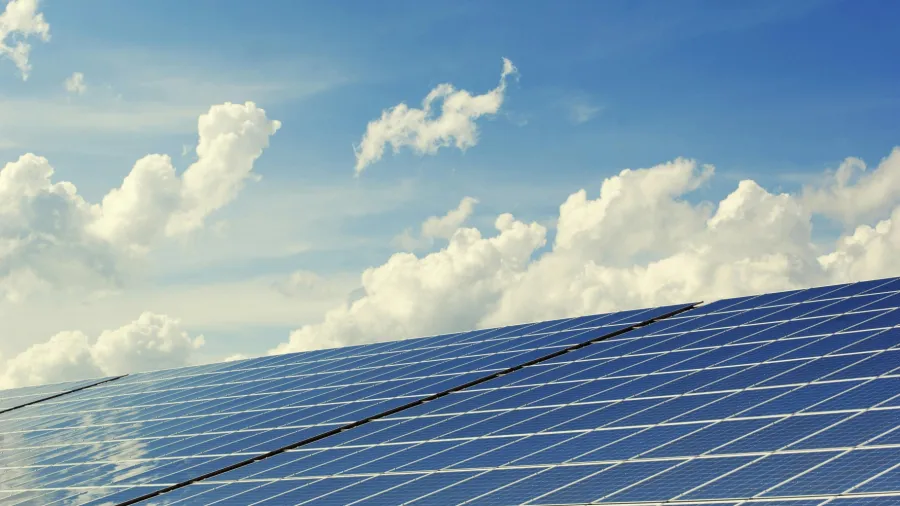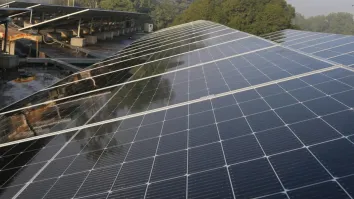
Indonesia told to tap communities in clean energy transition
Solar and wind power managed by villages could generate 96 million jobs over 25 years.
Indonesia should consider community-based energy producers, not just big power plants, in its transition to clean energy, according to think tank Center of Economic and Law Studies (Celios).
This approach could generate $683 million (IDR10.6t) in economic value over 25 years, creating 96 million jobs across various sectors, Celios said.
"Community-based energy allows people to act not only as consumers but also as producers of energy,” Bhima Yudhistira Adhinegara, executive director at Celios, told Asian Power. “This model offers solutions for electricity needs in remote and rural areas while gradually reducing carbon emissions.”
Bhima noted that the installation of community-based solar panels has a direct impact on the sector, transportation and warehousing services for equipment delivery, and education services that train technicians. “Indirect impacts include increased productivity in community businesses, agricultural processing, plantations, and fisheries.”
Despite untapped renewable energy sources and strong economic growth, renewable energy investment in Southeast Asia’s most populous nation has stagnated for the past seven years.
Last year, it only attracted $1.5b, equivalent to a paltry 574 megawatts (MW) of additional capacity, the Institute for Energy Economics and Financial Analysis said in a report in June.
Celios in a study earlier this year said the Southeast Asian nation’s energy transition has mostly relied on large-scale power plants that cause deforestation and conflict with indigenous communities. They can also alter the ecosystem of dams upstream and downstream due to increased water demand.
Bhima said tapping communities allows them to own and manage their energy resources independently, reducing reliance on electricity supplied by state-owned PT Perusahaan Listrik Negara (PLN), which has a monopoly on electric power distribution in Indonesia and generates most of the country's electricity.
"As a result, community-based energy fosters stronger and more sustainable energy resilience," he added.
The Celios study found that micro-hydropower and solar panels are the most promising renewable energy sources. Micro-hydroenergy can harness more than 70,000 river streams, while solar energy has a potential capacity of 112,000 gigawatts (GW). Wind energy is ideal in coastal and small islands, with a potential of over 155 GW.
Bhima said one example of community-based energy implementation is the one in Kasepuhan Ciptagelar Village in West Java. The water flow from the Cisono and Cibareno rivers is used to generate electricity, which is then distributed to thousands of homes in Ciptagelar.
Another is the micro-hydropower plant in Kedungrong, Yogyakarta, which is managed by the village and funded by monthly contributions from residents to cover maintenance costs. In some cases, the projects are funded by grants and corporate social responsibility programs, such as the micro-hydro project on Sumba Island in East Nusa Tenggara, Bhima said.
More attractive tariffs
He said community-based energy production is needed in many remote and island regions of Indonesia, adding that the use of solar, water, and wind power significantly cuts logistic costs compared with large projects involving coal, which must be transported from mines to coal-fired power plants.
The main challenge in tapping communities for energy supply lies in the design of the National Electricity Supply Business Plan and the funding mechanism of Indonesia’s Just Energy Transition Partnership, which both have yet to fully involve communities.
“Currently, large-scale power plants are being built suddenly, without meaningful consultation with the affected communities,” Bhima said.
He cited the need for regulatory reforms, such as more attractive electricity purchase tariffs and the use of PLN's grid for distributing community-generated electricity.
There is also a need for capital support, including the use of state budgets — village and regional transfer funds, and grants — and banking solutions such as low-interest microcredit and cooperatives, he pointed out.
“Fiscal incentives are also required to boost the production of local power generation devices, allowing communities to access more affordable prices,” Bhima said.

















 Advertise
Advertise







